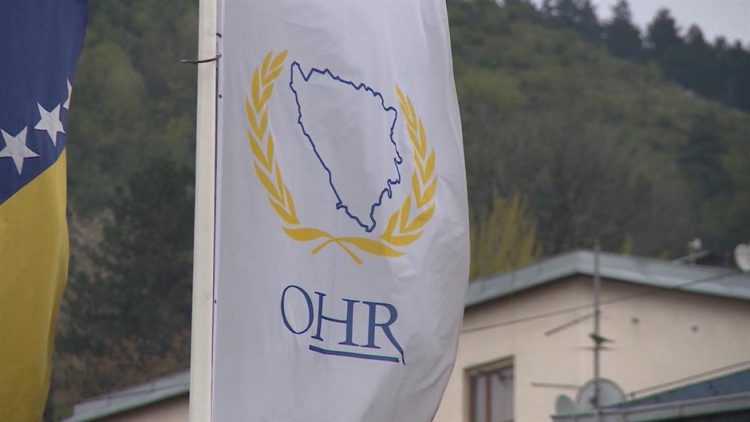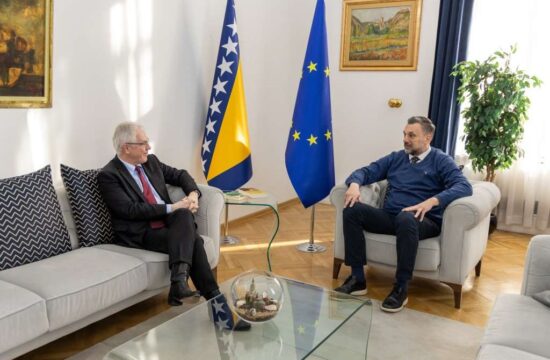
Those denying the Srebrenica genocide, glorifying war crimes, war crimes perpetrators or relativising evil are acting outside all civilisational values, the Office of the High Representative (OHR) told N1.
Asked by N1 to comment on the newly built monument to the convicted war criminal Ratko Mladic near Kalinovik, Eastern Bosnia, the OHR, which oversees the civilian implementation of the Dayton Peace Agreement that ended the war in Bosnia (1992-1995), said that the use of irresponsible heinous allusions to the recent tragic past must end.
“As the High Representative said on multiple occasions, those denying the Srebrenica genocide, glorifying war crimes and perpetrators of war crimes or relativising evil, are acting outside all civilisational values,” the OHR said. “It is incomprehensible that a student dormitory is named after a convicted war criminal, and that the other war criminal was honoured by a monument. The High Representative calls on all citizens, public figures and authorities to stop using such irresponsible and heinous allusions to the tragic past and instead to work on establishing a peaceful and prosperous future for all Bosnian citizens.”
N1 also asked the OHR to comment on the statements made by President of the Serb-dominated Republika Srpska entity, Milorad Dodik, who said that should one of the signatories of the Dayton Peace Agreement withdraw their signature from the Agreement, the RS would secede from the country.
“The Dayton Peace Agreement is binding to all the signatories and it recognizes Bosnia and Herzegovina as an internationally recognized country that was unanimously admitted to full UN membership on May 22, 1992, together with Slovenia and Croatia, and whose sovereignty and territorial integrity is guaranteed by the Dayton Peace Agreement,” the OHR added and stressed that according to the same agreement, entities have no right to secession and that they exist only based on the Dayton Peace Agreement which also contains the Constitution of Bosnia and Herzegovina.




